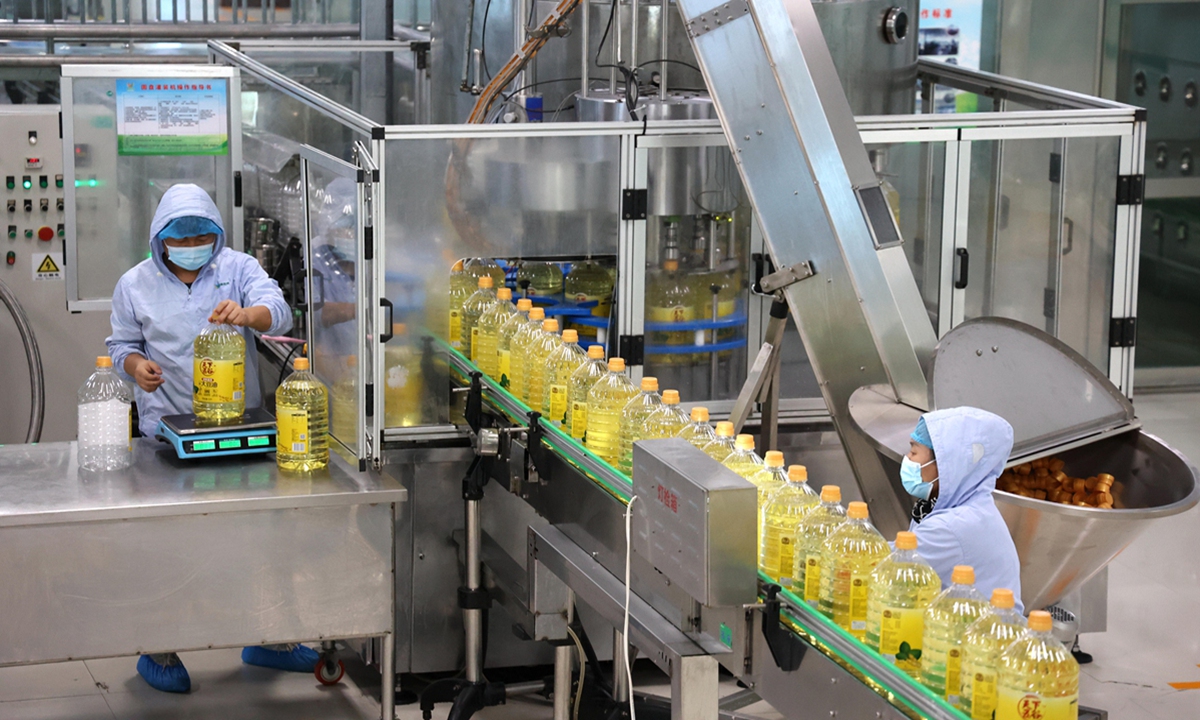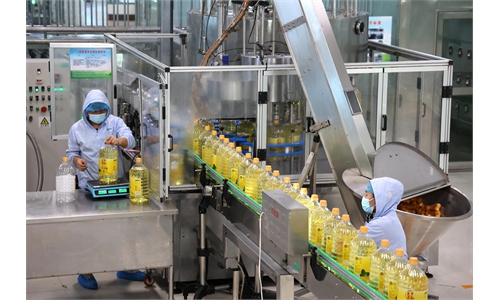China releases first corporate standard in road tanker truck for edible oil transportation

Workers process edible oil at a factory in Boxing county, East China’s Shandong Province on January 8, 2024. With the approach of the Spring Festival holidays, which begin on February 10, demand for edible oil is rising, and manufacturers are scaling up production to meet the peak in market demand. Photo: cnsphoto
A Chinese vehicle manufacturer has released the first domestic corporate standard in tanker truck equipment for edible oil transportation.
According to a statement published by CIMC Vehicles (Group) Co, one of the world’s leaders in the sophisticated manufacturing of semi-trailers and specialty vehicles, the enterprise released on Friday the corporate standard in manufacturing tanker truck equipment for edible oil, a move that the company said is of significant importance in promoting the safe transportation of edible oil and food safety, as well as for the high-quality development of the industry.
A report by The Beijing News in early July stirred public concerns over food safety after revealing the tanker truck industry of mixed transportation of food and chemical liquids in the same vehicle without cleaning in between. Many operators do not clean the tanks in order to cut costs, and edible oil producers do not check the tanks even though it is required by regulations, resulting in chemical residue and potential contamination of edible oil.
According to the statement, a serious phenomenon of “mixed load” has been found that many general-purpose liquid tanker trucks in China carry both edible liquids, such as syrup and soybean oil, as well as chemical liquids such as coal-based fuel.
In addition, the tanker trucks vary in the quality of the materials they use. Coupled with other similar issues, significant food safety risks existed in the domestic edible oil tanker transportation industry, the statement said.
According to the statement, the standards were released in a bid to solve the “essential” safety problem of edible oil tanker transportation equipment from the origin.
The standard specifies the technical requirements, testing methods, inspection rules, markings and labels, factory documentation, and transportation and storage for road transport tankers used for edible oil. It ensures that the quality of tankers “has standards to follow and regulations to check,” laying a solid foundation for the healthy development of the industry.
According to China’s Food Safety Law, containers, tools and equipment used for the storage, transportation and loading and unloading of food must be safe, non-toxic, and kept clean to prevent food contamination. They should also meet specific requirements on temperatures, humidity, and other conditions necessary to ensure food safety.
In this corporate standard, further clarifications have been made regarding the requirements on materials for important components, such as Austenitic stainless steel used in manufacturing components such as the tank container of the tanker truck.
Global Times


